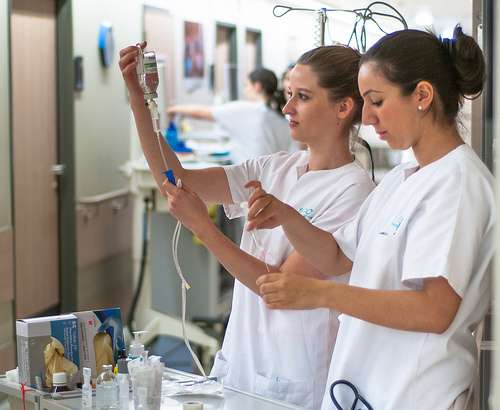Model works on nurse stress levels

International researchers together with local scientists have created a theoretical model to help nurses become less susceptible to stress.
The International Collaboration on Workforce Resilience, initiated by Curtin University, identifies the psychological factors that influence nurses' stress and will help develop ways to build resilience in employees who might need assistance.
Curtin University Associate Professor Clare Rees says it is very clear there is a need for interventions for more stressful occupations in which rates of depression, anxiety and burnout are high.
"Employees in "high death" professions, such as nursing, cancer support and palliative care, can experience compassion fatigue, when they really don't have much left to give their patients," A/Prof Rees says.
"When not managed effectively, this stress can not only negatively impact individuals' mental and physical health, but can cause high turnover and a lower quality of care."
The researchers determined there wasn't a testable model available, so they created their own evidence-based model.
"By creating a theoretical model that we can test, we hope to discover what makes some nurses resilient and work on ways to help those who are less so," she says.
The scientists used the biopsychosocial model as a framework; a model that considers clinical problems as having multiple interacting causes and contributing factors.
They identified key variables associated with negative psychological outcomes.
Model includes mindfulness and coping
"We identified neuroticism as a huge influence on stress, but it is built-in and usually genetic, so we focused on the other variables that were more controllable," A/Prof Rees says.
These identified variables were mindfulness, (being able to detach yourself), self-efficacy (the ability to control your environment) and coping (how you adjust to an adverse event).
"Ideally, people need a mix of these variables in order to deal with workplace stress," she says.
The study is currently being tested on large numbers of nurses working in various settings in Australia, Singapore, Hong Kong and Canada who will fill out questionnaires as part of the research.
"We will be guided by the responses from the questionnaires," A/Prof Rees says.
"Interventions might take the form of mindfulness sessions, or filling in gaps in training and preparation, whatever is needed to promote healthy psychological adjustments to help nurses cope better in the workplace."
While the model is being tested on the nursing workforce the researchers expect to extend this testing to other occupations in the near future.
More information: "Understanding individual resilience in the workplace: the international collaboration of workforce resilience model." Front. Psychol., 04 February 2015. DOI: 10.3389/fpsyg.2015.00073

















